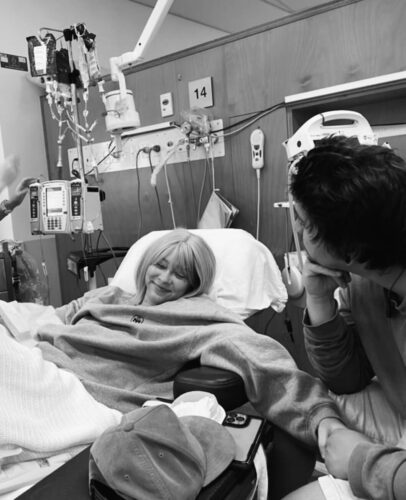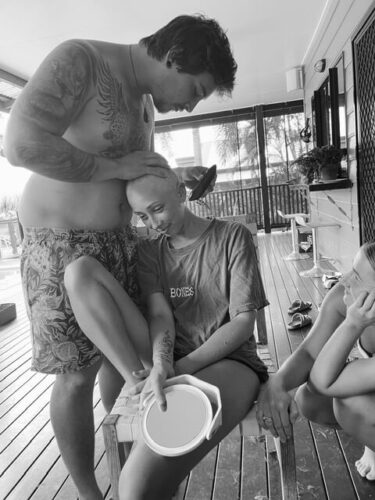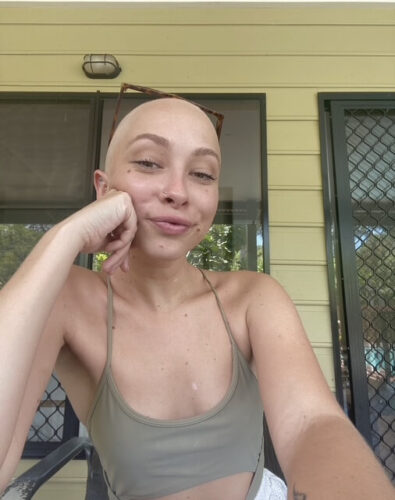A Powerful Reminder: Be Gentle With Ourselves
Lennox was 22 when she was diagnosed with Stage 2 Hodgkin Lymphoma at the end of 2022, after months of feeling unwell. “I had really terrible night sweats, lost 15kgs, couldn’t even walk up my stairs without sitting down, and was constantly sick and bone-deep exhausted,” she recalls. Despite feeling like something was wrong, it took multiple visits and tests, including a biopsy, before she finally received a diagnosis.
Her body’s response to treatment was anything but easy. Lennox had an anaphylactic reaction to her first round of chemotherapy, which led to a switch to ABVD. Along the way, she faced complications like blood clots, a staph infection in her PICC line, and countless other issues that made the process even more difficult. But despite it all, Lennox maintained a positive mental attitude. “I was made to feel a bit silly for it because I was ‘young, it’s supposed to be easy,’” she shares. “But it doesn’t matter how old you are, if it’s not easy, it’s not easy and that’s ok.”
She learned quickly that every person’s experience with lymphoma is unique, regardless of age. “Trust your instincts and your knowledge of your own body. You know it better than anyone.”
 Looking back, Lennox says the hardest part came after treatment. “Personally, I found after treatment to be a lot harder mentally. You’re suddenly out of fight mode and it’s very isolating. Especially as a young person, you’re in a body that doesn’t feel like yours and there is a lot of grief.” She stresses the importance of giving yourself time and space to feel everything. “Sit with it and feel it, I promise it gets better. Nearly two years out of treatment, I’m finding myself again.”
Looking back, Lennox says the hardest part came after treatment. “Personally, I found after treatment to be a lot harder mentally. You’re suddenly out of fight mode and it’s very isolating. Especially as a young person, you’re in a body that doesn’t feel like yours and there is a lot of grief.” She stresses the importance of giving yourself time and space to feel everything. “Sit with it and feel it, I promise it gets better. Nearly two years out of treatment, I’m finding myself again.”
Today, Lennox is in remission. But the road hasn’t been easy, and she wants others to know it’s okay to struggle. “It takes a while, but you get there. It’s ok to be angry, hurt, and frustrated. Just please be gentle on yourself.”
Lennox also credits some of her support to Lymphoma Australia, especially their treatment packs. “They were very helpful,” she says. “The essentials in them made a difference when I needed extra support.” She encourages anyone facing lymphoma to reach out for help and lean on others when they can. “Be gentle on yourself, and ask for help. If there’s ever a time to depend on people, this is it.”

Lennox’s story is a powerful reminder that everyone’s experience with lymphoma is different, and that it’s okay to take time to heal, both physically and mentally. Her advice? “Listen to your body and be gentle on your mind.”
We’re so grateful to Lennox for sharing her story, and we know it will provide comfort and support to others who are going through similar experiences. If you are or know someone affected by lymphoma, Lymphoma Australia is here for you with resources, support, and care.
You’re not alone.